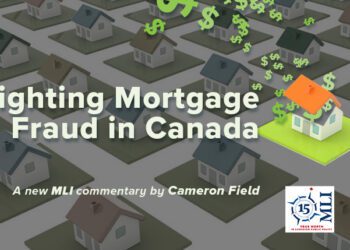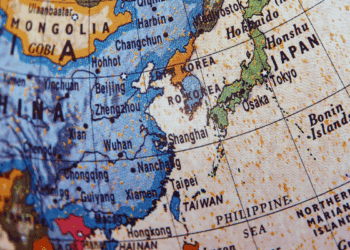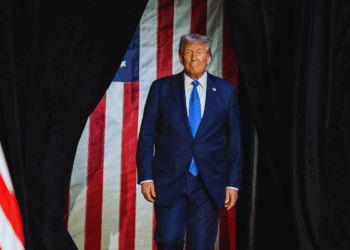Writing in the Ottawa Citizen and Calgary Herald, MLI managing director Brian Lee Crowley encourages Canadians to learn from dealing with Russia and other of the world’s “bullies”. Crowley writes that Canada’s leaders in the past acquiesced to the terms of Quebec nationalists in referendums, nearly resulting in the division of the country. The federal government took action with the Clarity Act, but Crowley notes that the Act fails to “inform Quebecers what Ottawa’s negotiating mandate will be in the case of a yes vote”. According to Crowley, “When Ottawa maintains ambiguity on these other issues, it makes preserving Canada harder, not easier, because it lets nationalist bullies maintain the fiction that independence is a costless panacea and that Canada will willingly lie down and be dismembered”.
Brian Lee Crowley, March 14, 2014
Actions have consequences. The Russian invasion of Crimea and their organizing of an unconstitutional referendum on its independence from Ukraine is an example whose consequences should be in every Canadian’s mind should the Parti Québécois win the Quebec election on April 7.
The West has fairly consistently chosen the soft option when dealing with Russia since the end of the Cold War. From Europe consciously deciding to allow itself to become dependent on Russian oil and gas to America’s limp response to Russian territorial acquisitions in places like South Ossetia and Bessarabia to President Barack Obama’s backing down on missile defence installations proposed for Poland and the Czech Republic, placating and appeasing have been the West’s watchwords. Unsurprisingly, Russian President Vladimir Putin has concluded provocation and resolve pay off in the face of western prevarication.
Similar lessons are to be drawn from Iran, North Korea, Syria and other trouble spots where western weakness and wishful thinking have licensed appalling behaviour by the world’s bullies.
As Canada confronts the very real possibility of a PQ majority government and a third instalment of Quebec’s neverendum, the time has come to ask whether we now have the courage to apply domestically these lessons from abroad.
The nationalist bullies always bristle at any suggestion Canada should have a role in determining Quebec’s future. On their view, Quebec alone must decide if and when there is to be a referendum, what the question is and what constitutes a win.
Canada’s leaders basically acquiesced in these conditions through two referendums and have studied their fingernails as Quebec has industriously set about marginalizing and driving out federalist voters.
Following the razor-thin margin of victory in the 1995 referendum, Ottawa grew a slender backbone and asked the Supreme Court for guidance on what Canada was entitled to demand for a secession vote to be valid. To summarize crudely, the court said a clear answer to a clear question triggered an obligation on the rest of Canada to negotiate with Quebec. Any deal arising from those negotiations would require constitutional amendment. And Ottawa was obliged to protect the interests of minorities, including, presumably, the minority who voted to remain in Canada.
Put slightly differently, the law of the land is that Quebec may do nothing unilaterally. The question, the referendum rules, the winning threshold, the shape of any subsequent deal, all require the participation and agreement of Ottawa and, in the case of constitutional amendment, the agreement of most or all of the other provinces.
Ottawa followed up with the Clarity Act, one of Jean Chrétien’s greatest achievements. But most people miss two vital features of the Clarity Act: what it does not contain and the reaction to it in Quebec.
In terms of its content, the Clarity Act purports to put into law the Supreme Court’s decision, but it is highly selective, focusing on the issue of a clear answer to a clear question being necessary to trigger secession negotiations with Quebec. But it fails to clarify how Ottawa should honour its other obligations under the Supreme Court’s decision. It does not say how it will react in the face of provocation by Quebec City, for example, such as unilaterally setting an unclear referendum question. A real Clarity Act would, in such a case, require Ottawa immediately to hold its own referendum on a question like, “Should Quebec remain in Canada?”
More importantly, the act fails to inform Quebecers what Ottawa’s negotiating mandate will be in the case of a yes vote. Will it rule out the use by Quebecers of the Canadian passport and refuse Quebecers any voice over Canadian monetary policy if they use the loonie? Will it interpret its obligation to protect minorities as authorization to claim all regions that vote to remain in the federation? Answering these questions is not provocation. It is providing Quebecers with the vital information they need to understand the consequences of voting for separation. It treats Quebecers as the responsible adults they are.
That brings us to the other feature of the original Clarity Act: Quebecers’ reaction. Contrary to the myths retailed by nationalist elites, ordinary Quebecers were largely in favour of the act when it passed because its rules are sensible and fair. Polls also show clearly they don’t want independence.
When Ottawa maintains ambiguity on these other issues, it makes preserving Canada harder, not easier, because it lets nationalist bullies maintain the fiction that independence is a costless panacea and that Canada will willingly lie down and be dismembered.
We won’t, and if the PQ wins its majority on April 7, the federal government that says so, calmly, rationally but unequivocally, will find Canadians everywhere, including many in Quebec, on its side.
Except for the bullies, of course, whose bluff we will finally have called.
Brian Lee Crowley (twitter.com/brianleecrowley) is the managing director of the Macdonald-Laurier Institute, an independent non-partisan public policy think-tank in Ottawa: macdonaldlaurier.ca.




